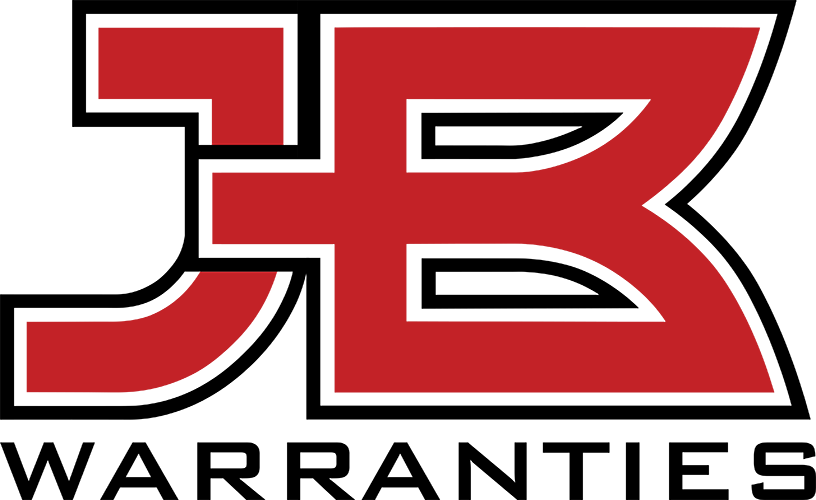
It's easy to build your company culture when all of your employees work, day after day, under the same roof. However, for HVAC and plumbing contractors, many of your team members are likely spending their time on work orders out in the field, not catching up in-office. Of course, with the 2020 pandemic, all of your team may have been remote at one point or another.
It can be tricky to build a healthy company culture with a dispersed team, but it doesn't have to be impossible. By encouraging open feedback and cultivating employee engagement, you can foster a work environment that drives team productivity and overall satisfaction.
Why is Company Culture Important?
Company culture is a set of values and behaviors that mold your company environment. Establishing a thriving company culture can be a significant factor in the overall success of your business.
A safe and welcoming company culture can impact how long current employees wish to remain part of your team and whether potential employees decide to accept a job. Without an established culture, your company can suffer from both a lack of worker productivity and job fulfillment—ultimately impacting your customer satisfaction and bottom line.
Do not underestimate the power of creating a team identity that encourages open communication and interaction between your employees. A massive 82 percent of employees greatly value their colleague's input in complex work scenarios, but a considerable 34 percent don't believe they receive enough social interaction with their team.
A team member who feels disconnected from their company or like they can't approach colleagues for help runs the risk of abandoning the job entirely. Not to mention, their lack of motivation will likely reflect in their work, and eventually, customer satisfaction.
To minimize these risks and improve technician satisfaction, consider these five tips for building company culture across dispersed HVAC and plumbing teams.
1. Learn from What Other Organizations Are Doing
When you want to develop a work environment that your team will appreciate, take time to reflect on your previous experiences in other companies. What aspects of your past employers did you love? What did you hate? What areas can you make better in your company?
You should also reach out to trusted people in your network to discover how they are building terrific work environments or lessons they’ve learned from missteps so that you don’t repeat their mistakes.
 2. Align Culture with Your Core Values
2. Align Culture with Your Core Values
Has your business established its core values? If you have employees, it’s critical to share these so that everyone understands what you expect from them, what they should expect from you, and what customers should expect from your brand.
If transparency and honesty are vital to you as a business owner or leader, reflect that in your company culture. Have open communication and honest conversations that keep your team in the loop and feeling secure. Be an example of the values you want the company to embody and set expectations for the team to adhere to those values, too.
By sharing your core values with the team, you will help mold the culture you want. Doing so will attract top talent best suited for your organization, all while influencing how those individuals represent your brand out in the field.
3. Communicate Your Culture to Team Members
Contractors in the HVAC and plumbing industry tend to operate through remote or distributed teams, making it tough to effectively share company culture and values. A lack of communication with your current employees can severely stunt the growth of your culture. Minimally communicating company culture can be problematic for new team members since they receive little-to-no face-time with coworkers.
When employees don’t understand the expectations and values held in your business, how can you expect your team to uphold those values?
For companies that operate in remote or distributed teams, you'll need to document what you expect from your business and the company culture behind it. Whether this is a physical document or business webpage, clearly articulate your core values, performance expectations, and how employees will be assessed. Remember to remain inspirational and approachable versus overly restrictive.
4. Encourage Open Communication and Feedback from Employees
Transparency and open communication in the workplace are crucial to developing a robust company culture. When concerns arise, workers should have the ability to speak out—without fear—when they deem it's necessary. By reducing any formality and presenting a casual and laid-back approach to worker communication, there are fewer chances employees will remain quiet on important issues.
The more your employees communicate, the easier it will be for you to provide resolutions to issues. Encouraging a transparent environment where communication and feedback are welcome gives you a broader understanding of where your company could use improvements to strengthen your company culture.
5. Set Aside Time for Engagement
Dispersed and remote positions aside, your technicians should always feel part of your team. As such, you must set aside time for engagement and establish routine communication methods with your workers. Carving out time for employees to interact with one another allows technicians to feel part of the team and make it easier to request assistance from other staff members when they need it.
Consider incorporating virtual conference platforms like Zoom to hold virtual "water coolers" as an excellent way for new and old techs to meet and chat remotely. You can also consider planning monthly meetings or training sessions where techs can hang out, catch up, and discuss concerns.
Designated time to mingle and work through various scenarios strengthens the overall "team" aspect of your company culture.
6. Communicate Frequently and Transparently
When your team is all over town, good communication keeps everyone in sync. Use a mobile app or a messaging tool to share quick updates, job changes, and anything else your crew needs to know. A quick weekly check-in—whether it’s a text update, a video call, or even a voicemail—can help everyone feel connected to the bigger picture. Share the company goals, highlight safety reminders, or pass on some positive customer feedback. Keeping everyone in the loop isn’t just practical; it builds trust and helps people feel valued.
Try This: Share a “win of the week.” Maybe a tech nailed a tough job, or a customer left a glowing review. Highlighting these moments gives everyone a boost and shows the team they’re part of something bigger.
7. Invest in Training and Development
Let’s face it: good employees want to grow. In HVAC and plumbing, where tech changes fast, offering training keeps your team sharp and loyal. It also shows that you value their future with the company.
Pro Tip: Focus training on the latest in smart home tech, energy efficiency, or eco-friendly solutions—whatever’s trending in our industry. It helps your team stay ahead and feel like they’re working for a forward-thinking company.
8. Foster Mentorship and Peer Support
In an industry where experience and hands-on know-how make all the difference, mentorship can be a powerful way to build culture and bring your team closer—even when they’re rarely in the same place. Pair up seasoned techs with newer team members or set up a system where employees can reach out to each other for advice on tough jobs. This helps the more experienced folks feel valued for their expertise and gives newer techs a reliable resource for learning the ropes.
Make It Real: Consider monthly “tech talks” where team members share tips, tricks, or lessons learned from the field. It could be a simple video call or even a quick “pro tip” email, but these moments let your team learn from each other and build camaraderie, no matter where they’re working.
9. Celebrate Milestones and Wins
Plumbing and HVAC work can be tough. Recognizing the wins—both big and small—keeps spirits up. Is someone hitting their 5-year mark? Send out an announcement. Did your crew finish a challenging job with no call-backs? Shout it out! These little things make a big difference.
Keep it Simple: Consider a quick monthly “shout-out” email, highlighting team milestones or a “thank you” for a job well done. These moments build pride and loyalty, showing your team their hard work matters.
10. Stay Ahead of Industry Trends to Keep Your Team Inspired
Our field is changing fast. Between the shift to high-efficiency systems, smart tech, and new environmental standards, there’s a lot to keep up with. As a leader, staying updated shows your team that you’re serious about the future of the business.
Strengthen Your Company Culture as a Team
While maintaining a robust company culture with a dispersed or remote team can be a job in itself, it's a task that's definitely worth it. When you incorporate open communication and feedback, establish core company values, and set time aside for engagement, your technicians can feel the power of strong company culture. Take these steps, and you'll create a positive and profitable work environment.
Brian Bohannan
Vice President of Sales at JB Warranties






